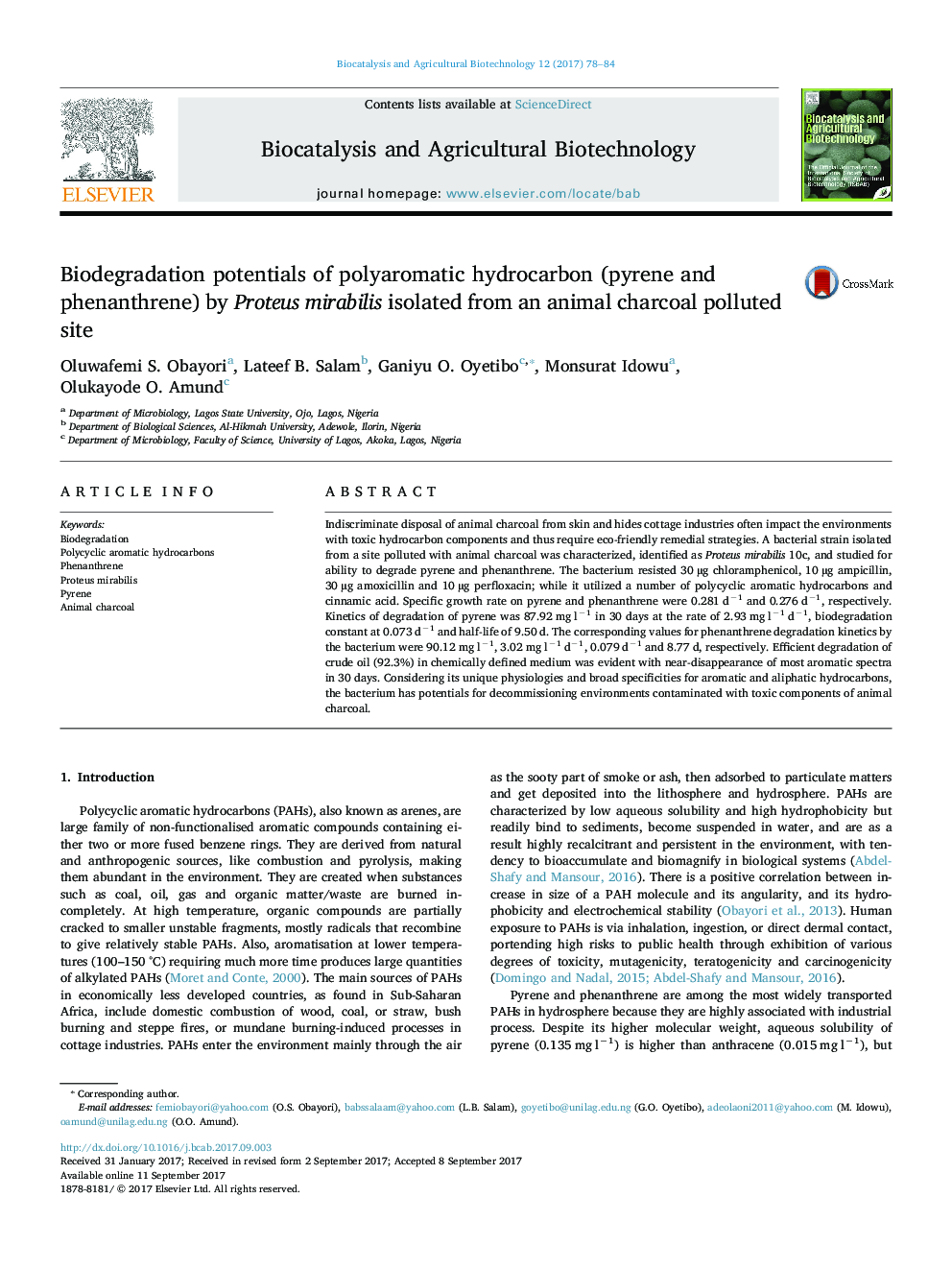| Article ID | Journal | Published Year | Pages | File Type |
|---|---|---|---|---|
| 5520432 | Biocatalysis and Agricultural Biotechnology | 2017 | 7 Pages |
â¢Animal charcoals pollute agricultural medium with toxic hydrocarbons.â¢Bacterial strain, Proteus mirabilis 10c was isolated from charcoal polluted sediment.â¢Strain 10c resisted some antibiotics and utilized some aliphatic and aromatic hydrocarbons for growth.â¢Excellent biodegradation of pyrene and phenanthrene was achieved with the strain.â¢The bacterium is a promising biotechnological tool for mitigating sites polluted with animal charcoal.
Indiscriminate disposal of animal charcoal from skin and hides cottage industries often impact the environments with toxic hydrocarbon components and thus require eco-friendly remedial strategies. A bacterial strain isolated from a site polluted with animal charcoal was characterized, identified as Proteus mirabilis 10c, and studied for ability to degrade pyrene and phenanthrene. The bacterium resisted 30 µg chloramphenicol, 10 µg ampicillin, 30 µg amoxicillin and 10 µg perfloxacin; while it utilized a number of polycyclic aromatic hydrocarbons and cinnamic acid. Specific growth rate on pyrene and phenanthrene were 0.281 dâ1 and 0.276 dâ1, respectively. Kinetics of degradation of pyrene was 87.92 mg lâ1 in 30 days at the rate of 2.93 mg lâ1 dâ1, biodegradation constant at 0.073 dâ1 and half-life of 9.50 d. The corresponding values for phenanthrene degradation kinetics by the bacterium were 90.12 mg lâ1, 3.02 mg lâ1 dâ1, 0.079 dâ1 and 8.77 d, respectively. Efficient degradation of crude oil (92.3%) in chemically defined medium was evident with near-disappearance of most aromatic spectra in 30 days. Considering its unique physiologies and broad specificities for aromatic and aliphatic hydrocarbons, the bacterium has potentials for decommissioning environments contaminated with toxic components of animal charcoal.
